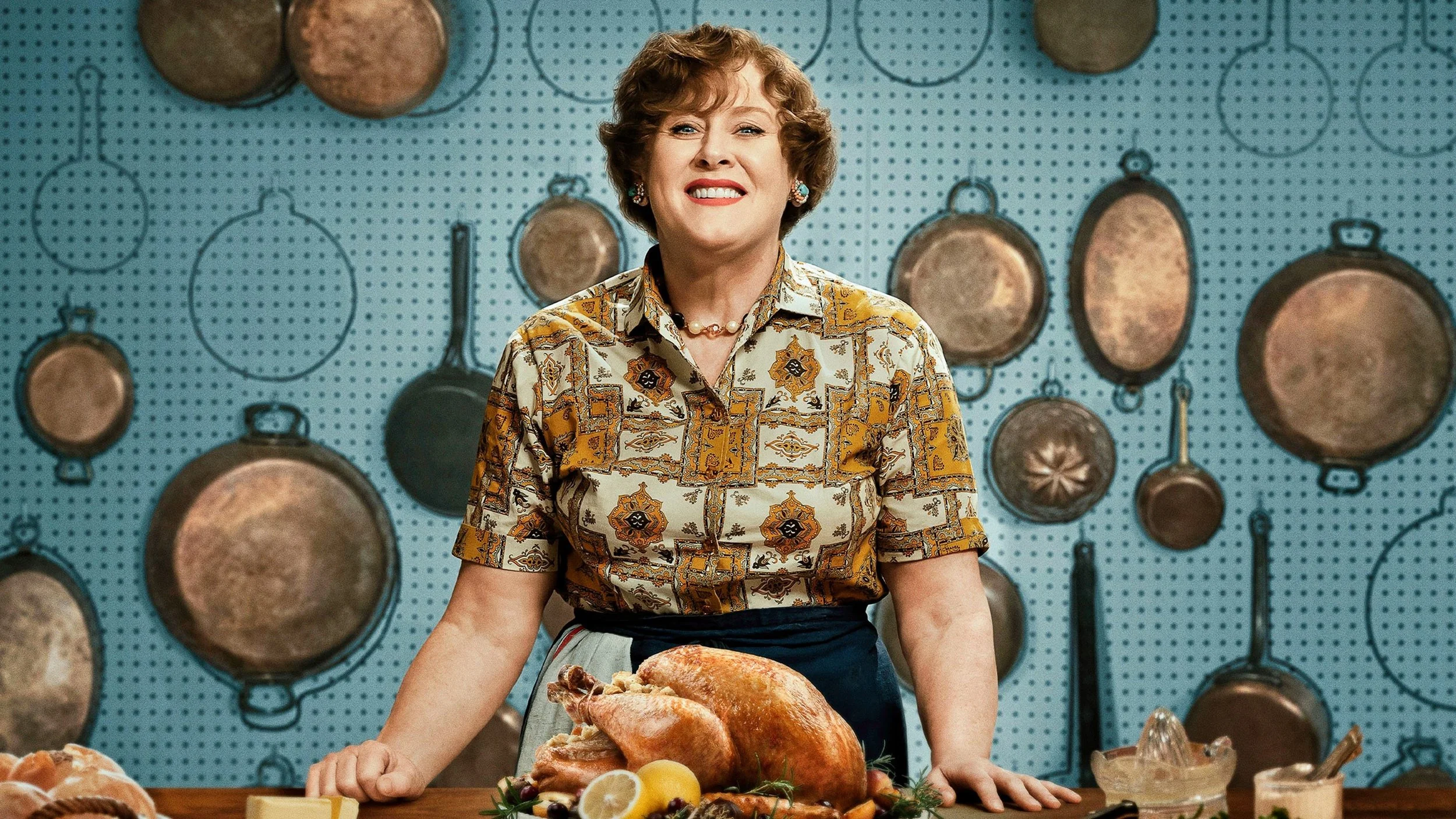Julia - Season 1
hbo maxBon appétit. It is the phrase Julia Child used to close 201 episodes of The French Chef, where for 10 seasons, she brought the art of french cooking into the homes of the everyday American family. Julia Child has for some time been a fascination to the American public. From when she first debuted on-screen to today, Child's wholesome yet strong attitude has captivated millions. Even when she went off the air, her legacy and soul lived on with cookbooks being sold, online blogs of individuals following her recipes being published, and museum exhibits being traveled to by none other than the writer of this very piece. With this relevance, it was only a matter of time until the life of Julia Child found itself once again on tv screens with HBO Max being the one to release Julia.
Set in the aftermath of releasing Mastering the Art of French Cooking, when Julia Child (Sarah Lancashire) and her devoted husband Paul (David Hyde Pierce) are settling down in America and preparing to start work on Julia's next book, Julia sees the Child's family life turn upsidedown when they are introduced to the prospect of Julia being featured on television. Despite both the studio and Paul being initially against the idea, Julia fights back and gets a pilot episode of the show made on her own dime. The reception is strong enough that a season is ordered, with continued financial support from Julia herself, and one of the most iconic and revolutionary shows in the history of public television is born!
With Child becoming an icon for her unique personality, the immediate thing to either make or break the show is the portrayal of Julia herself. Sarah Lancashire has plenty of weight on her shoulders with not only Julia herself becoming iconic, but also the Academy Award-nominated portrayal of the chef by Meryl Streep in 2009's Julie & Julia. Luckily for the entire production, Lancashire is fantastic in this role, as she is able to capture the sweetness of Child without erasing the bitterness that would equally be found in the figure. The entire show is careful to never fully reduce or overlook the complexions of Julia Child. While many know her as the sweet grandma who taught Americans how to make Coq au Vin, Child also had a reputation for being rather brash and conservative. While it has been well recognised that she eventually changed her mind to some degree later in life, Child spent much of her life being homophobic and rejecting progressive understanding and equality. While Julia refuses to ever make Child the villain or give her a moment of true bite when it comes to these views, it acknowledges them and lets them have their own moments, even if it concludes with her on a stage performing karaoke with a drag queen. While some might feel like this is a mistake of how to handle these sides of her life, it feels like a worthy enough mention of them while maintaining the overall enjoyable energy the show is supposed to carry.
This talent in acting is found not just in Julia, but also in the supporting cast around her. While they all have their small dramas, the love felt for the chef by her support system helps give the show a needed chemistry to play on the sidelines. Brought together by their enjoyment of Julia, even when they might not all get along themselves, it is the ensemble that brings the world of Julia to life. David Hyde Pierce is exquisite as Julia's husband Paul, who has a troubled relationship with his wife's career. While he always remains supportive and always wants what's best for Julia, the show pays close attention to the negative strain this attention puts on their marriage with David Hyde Pierce capturing this nuance with the most bite any aspect of the show ends up finding. Outside of the Child family, Bebe Neuwirth, Fran Kranz, Fiona Glascott, and Brittany Bradford are all also delightful!
As a period piece, the technical side of Julia is also rather stong, even if not revolutionary. The show successfully uses a blend of production design and camera tricks to equally create a sense of 1960s America while still making the show feel modern and technically clean. It is a surprisingly hard balance, yet Julia handles it flawlessly. The one area where the show might lose some of its clarity is in its handling of civil rights. On the backburner of the entire season is a discussion of the importance to highlight programming focusing on the ongoing battles for civil rights, with Russell Morash (Fran Kranz) specifically pushing for its inclusion. While somewhat irrelevant to the main plot of the show, there are but two minds of how the series decides to include this conversation. While finding a holistic capturing of American society and including these diverse sides is an incredibly worthy goal, how the show handles it leaves something to be desired. This conversation, despite having important nuance and intriguing ideas, is consistently pushed to the side and ends up with very little development or thesis. Ultimately, Julia does this perspective a disservice and one can hope that in future seasons, it can be fleshed out much more than it is here.
While Julia might not be a perfect show, this charming meal of personality and love is clearly worthwhile and goes down as one of the more enjoyable television courses of the year. Sarah Lancashire leads a fantastic ensemble that will make audiences fall in love with Julia Child all over again. Without reducing the character or the world she lived in, the film might not hold much of a bite but there is at least some substance to give the series depth and purpose even if the main goal is clearly to be a lighter more enjoyable watch.


